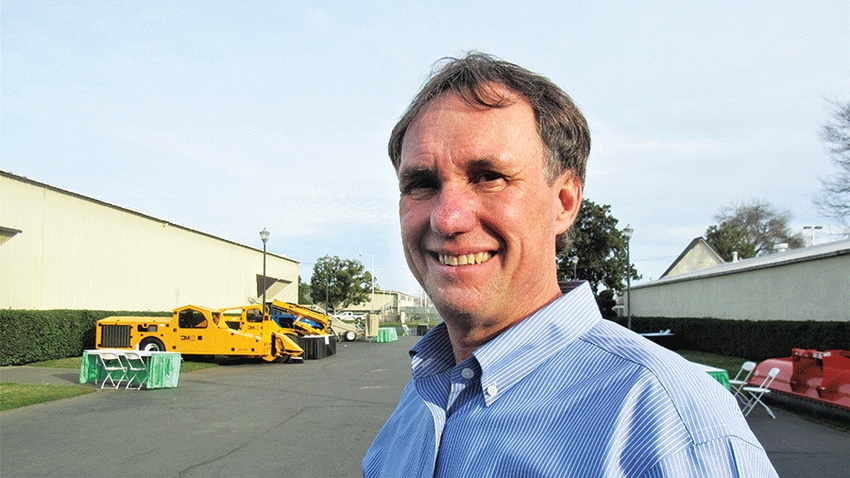
A researcher who has been studying the positive effects of grinding whole almond orchards into the ground will lead a demonstration and workshop on the practice Oct. 17 at Denair, Calif.
Brent Holtz, University of California Cooperative Extension pomology farm advisor at Stockton, will be joined by two other researchers and a pair of growers for the event, scheduled for 10 a.m. to noon at Cal Almond’s Lake Springs Farm Facility, 4424 Hawkins Rd.
In field trials, Holtz has found that whole orchard recycling increases soil organic matter and carbon, soil nutrients, and microbial diversity, leading to better productivity for the new trees planted in the old orchard’s place.
By the third year, soil nutrients were better in areas where old orchards were ground into the soil than in other orchards that were planted after the previous trees were taken out and burned, he says.
SIGNIFICANT TRUNK DIFFERENCES
“We didn’t see a big difference in tree diameter in the first year,” Holtz told growers at a Chico workshop earlier this year. “But in the fourth year, trunk diameter started to be greater in the grind treatments. By the sixth, seventh, and eighth years, trunk diameter was significantly greater with the grind. It took a while for that nutrient difference to show up in the trunk diameter.”
Among the benefits were better long-term yields and higher resilience to water stress, his trials demonstrated. For trees planted in 2009, the Butte variety yielded 1,956 pounds per acre in 2017, or more than 200 pounds an acre more than in orchards where the previous trees had been burned. Nonpareils showed an even greater difference, according to Holtz.
Regarding water stress, test plots last year went without water for 97 days by mistake, and bud failure was greater in the burn section than the grind.
Holtz began studying whole orchard chip incorporation into soil in 2003, with funding from the Almond Board of California. In 2008, he started a project at the UC Kearney Agricultural Research and Extension Center at Parlier, using a 100,000-pound rock crushing device, called an Iron Wolf, to uproot and grind stands of almond trees and push the woody biomass into the soil. Since some Central Valley cogeneration plants have closed in recent years, the Iron Wolf has elicited more curiosity among growers.
WORKSHOP SPEAKERS
At the workshop, Holtz will discuss whole almond orchard recycling and its effect on next-generation tree growth, yield, and fertility. Amelie Gaudin, assistant professor at UC-Davis, will follow with a talk on the long-term impacts of whole orchard recycling on soil properties and tree resilience to water stress.
Emad Jahanzad, postdoctoral scientist at UC-Davis, will then discuss the soil health and carbon sequestration potential of orchard recycling. Zach and Garrett Fowler of the Waterford, Calif.-based Fowler Brothers Farming will give an orchard removal and grinding demonstration.
For more information, contact the UCCE in San Joaquin County at (209) 953-6100 or e-mail Holtz at [email protected]
About the Author(s)
You May Also Like






